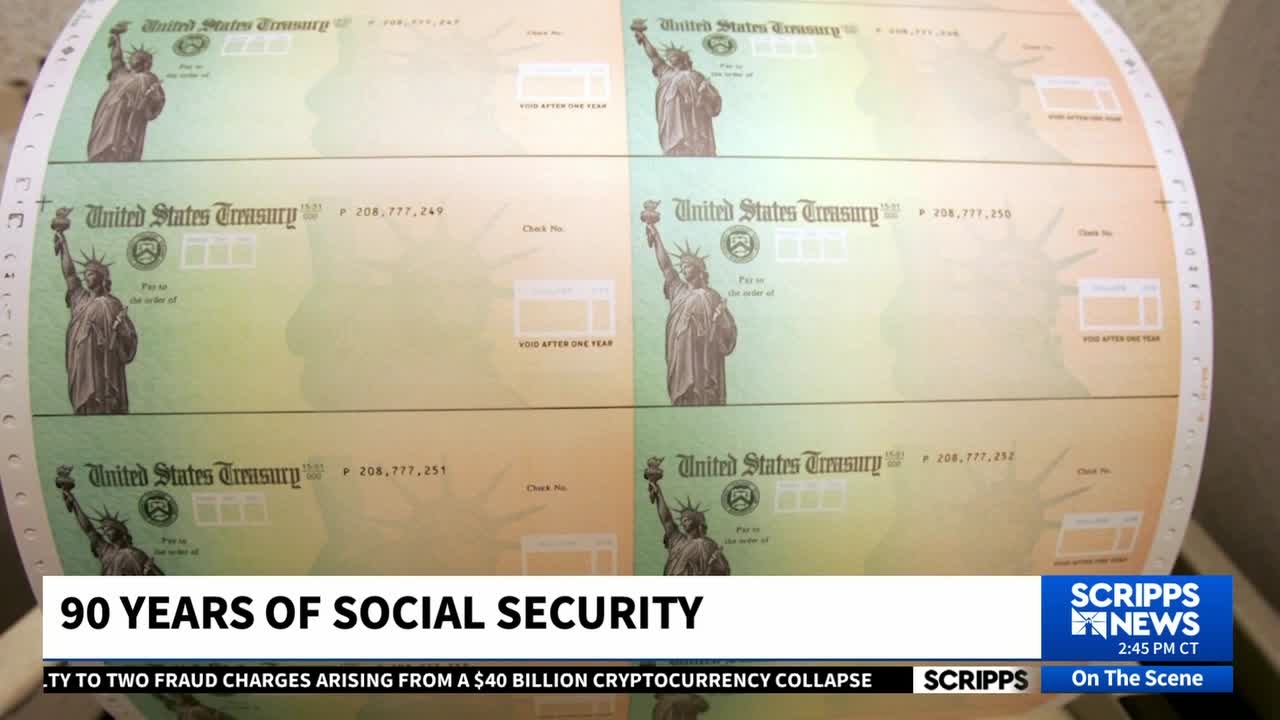Thursday marks the 90th anniversary of Social Security. The monthly payments are a lifeline for millions of Americans, but after years of cash flow problems, drastic changes could be around the corner if Congress doesn't act.
When President Franklin D. Roosevelt signed the Social Security Act in 1935, the law was designed to keep seniors out of poverty. Since then, Congress repeatedly voted to expand Social Security. Today, it's available to almost all Americans.
"Very different from how the program was originally sold as an anti-poverty program, it is now primarily an income replacement program for working Americans, regardless of need," explained Romina Boccia, the director of budget and entitlement policy at the Cato Institute.
The calculation to determine someone's monthly payment is complex. It depends on how much money you made when you were working and how much the overall economy grew. The average monthly payment today for the Old-Age and Survivors Insurance benefit is around $1,900, with some of the highest earners getting as much as $5,000 a month.
But Social Security has a cash flow problem. For years, the agency has been paying out more benefits than it takes in via payroll taxes.
"About a quarter of individuals think that there's a private account with their name on it at the Social Security Administration. Few people understand that benefits paid to current retirees actually come from current younger workers," Boccia said.
The latest annual report shows Social Security's Old-Age and Survivors Insurance benefit will run out of money in 2033. If Congress doesn't act before then, benefits will be cut across the board by 23%.
Ideas to fix the program's money problem include raising the retirement age, changing how benefits are calculated or capping benefits for wealthy Americans.
"The easiest fix would be to reduce benefits for the highest income earners. That would allow the government to preserve benefits for the most vulnerable seniors without imposing higher debt or tax burdens on younger generations," Boccia said.
Lawmakers on Capitol Hill recognize that any solution to Social Security's financial problems will require bipartisan compromise. "There are good proposals out there that can be able to lift the cap in terms of what, incomes pay into Social Security that would make it solvent for decades to come," said Sen. Andy Kim of New Jersey.
The country faced a similar problem in the 1980s. The solution then was to create a commission that recommended changes to fix Social Security's short-term and long-term financial problems. That report was the basis for major changes President Ronald Reagan signed into law in 1983.





